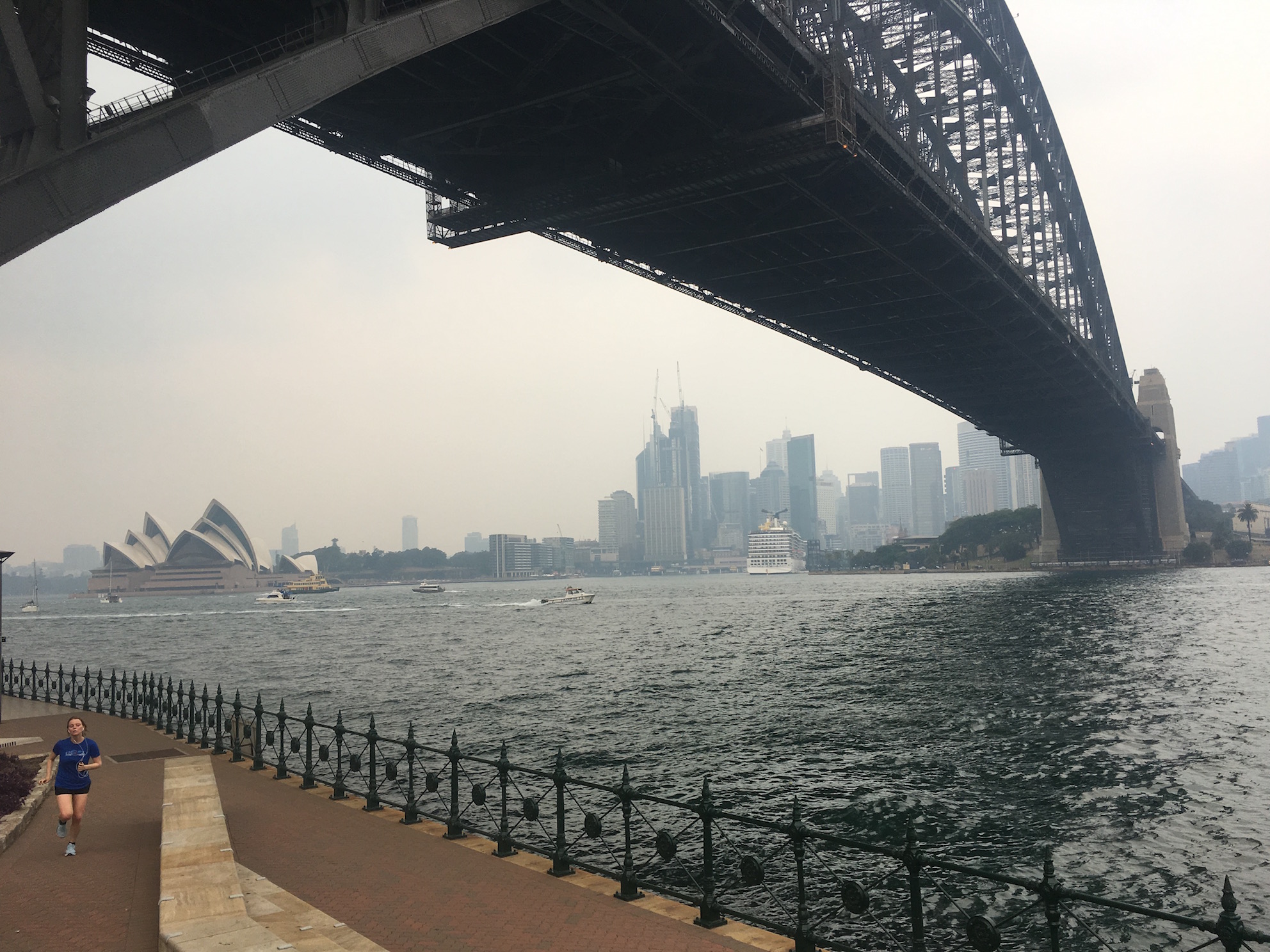Health Warnings for Sydney: Bushfires and Smoke Hazard in Sydney to repeat
Community News-Health Warnings for Sydney
Sydney’s air quality was dramatically bad on Sunday 12 January,..with many elderly people and others experiencing stinging eyes and difficulty breathing,.. after air quality again dipped into “hazardous territory” as prevailing winds blew bushfire smoke into the city from the south, where dozens of fires are still burning.
The NSW Department of Primary Industry’s Air Quality index showed levels across the metropolitan area reached “hazardous” levels of pollution before 10am on Sunday, and for most of the day,..while dangerous PM2.5 fine particle pollution was “poor” throughout most of the city.
Many areas of Australia are currently affected by bushfires and smoke. Find out how to manage the health effects of bushfire smoke and where to find local information.
Smoke hazard from bushfires. Exposure to smoke from fires can worsen asthma and other respiratory conditions, cause coughing and shortness of breath and irritate the eyes, nose and throat. … Other health hazards from bushfires include extreme heat, physical injuries such as burns, heat stress and dehydration.


Sydney Times archive images which serve as a comparison of Sydney Harbour (with views over to the CBD) on a clear summers day as compared to the recent smokey days
How can bushfire smoke affect your health?
Smoke contains fine particles that can affect your health.
For most people, smoke causes mild symptoms like:
- sore eyes
- sore nose
- sore throat
However, it can be more dangerous for people with existing lung and heart conditions like:
- asthma
- emphysema
- angina
People with these conditions should avoid outdoor physical activity when there’s smoke
around.
If you have asthma, you should follow your Asthma Action Plan and keep your asthma
medication with you.
The best way to reduce exposure to smoke is to stay indoors with the doors and windows shut.
Air conditioning can also help to filter particles from indoor air.
If you operate an air conditioner during smoky conditions, switch it to ‘recycle’ or ‘recirculate’ to reduce smoke coming inside your home.
Real time air quality
For long periods of smoke haze, it may not be possible to stay indoors all the time.
Monitoring your local air quality can help you find the right time to go outside when the risk is lowest.
- Australian Capital Territory Air Quality Index
- New South Wales Current and Forecast Air Quality
- Northern Territory Air Quality Network
- Queensland Air Quality Monitoring
- South Australia Air Quality Monitoring
- Tasmania Real Time Air Quality
- Victoria AirWatch
- Western Australia Air Quality Index
General health information
- If you are a GP. the Royal Australian College for General Practitioners has information for GPs impacted by bushfires
- Read Health Direct’s article about bushfires and your health







